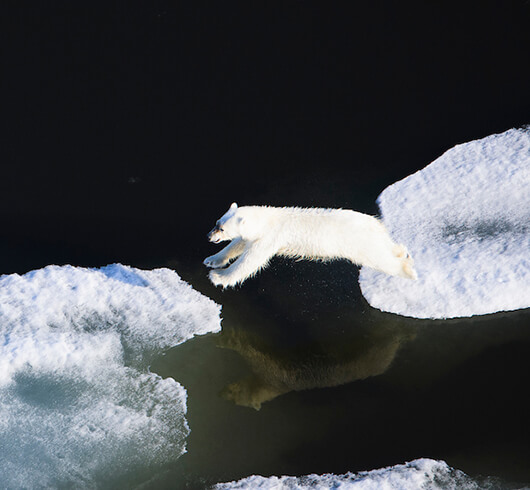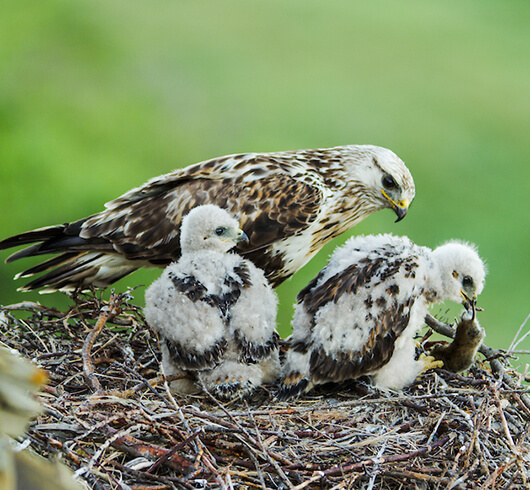WHAT'S AT STAKE
Some places are just too special to be developed– America’s Arctic is one of them. Yet, over the last few decades, politicians have advanced several proposals to open the coastal plain of the Arctic Refuge and the Western Arctic to oil and gas development, even though they know it would harm the area’s abundant wildlife and endanger the way of life of Indigenous communities who call the area home.
Polar bears are particularly vulnerable to the impacts of energy development in the Arctic. They are listed as a threatened species under the U.S. Endangered Species Act, and the population of polar bears in Northern Alaska, known as the Southern Beaufort Sea population, has recently declined by almost 40 percent. The Arctic Refuge is an essential habitat for this doubly threatened species. They rely on the coastal plain region to make dens, give birth, and raise their young.
These landscapes are also ground zero for climate change, where temperatures are rising at a rate four times that of the rest of the planet. Any oil and gas development in this region will only accelerate climate impacts, not only in the Arctic but across the entire planet.
Although the American public has long supported preserving the Arctic National Wildlife Refuge (ANWR) and the Western Arctic Reserve (NPR-A), in 2017, the Trump administration attempted to expedite oil and gas development on Arctic public lands. Congress mandated two lease sales in the Arctic National Wildlife Refuge to pay for other budgetary offsets. The first sale, held in 2021, received no bids from an oil and gas company. The second sale, scheduled for early 2025, was subsequently canceled after no company expressed interest in bidding.
In the Western Arctic, ConocoPhillips is currently taking steps to launch the Willow Project - a large-scale fossil fuel extraction effort that threatens the health of the region's landscape, wildlife, and human communities. Set in motion by the Trump administration, the courts blocked Willow from progressing, but it has since gained approval to proceed with infrastructure development.
Under the Biden administration, the administration took several steps to protect America’s Arctic, including protecting some 13 million acres in the Western Arctic (NPR-A) from development. Now, the Trump Administration is doubling down on efforts to develop this region.
The movement to join the Gwich'in and Iñupiat to protect the Arctic Refuge and Western Arctic is quickly growing. It is supported by over 60 groups of Indigenous Peoples, Alaskans, wildlife enthusiasts, conservationists, veterans, sportment, people of faith, scientists, and people like you. Recent studies show that more than 70 percent of Americans favor preserving this great American wilderness.





